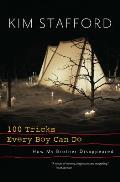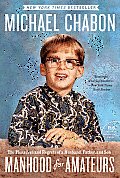
What is your quest with certain books you have read? What is the trick to find your way, by the light of this book, crumb by crumb, word by word, story by story, in the general direction of your destiny?
I remember in the 1970s when the old man, Walter Powell, had a little bookstore on a side street in rainy Portland, and I used to go there as much for a conversation as for a book. I hadn't published much then, and bookstores were like zoos of curious creatures: writers, shamans, seekers, eccentric possessors of some elusive kind of excellent luck. I was a person, but I wanted also to be a book. And books were thick in the very air of that small space, leering at me from shelf upon shelf, nudging me as I worked the aisles, elbowing into my thoughts, and whispering in my ear, "Hey, you! What's your story?"
One time at the register, as I counted out my quarters for some lovely old novel, I said to Mr. Powell, "I saw that giant book of color studies by Josef Albers — $400. Really?"
"It may never sell," he said, smiling, "but it gives the store tone."
Tone. Resonance. Welcome. For that I go to independent bookstores, little places where the books loom big, where an easy chair beckons from a corner, where a cat curls asleep, and I can feel the spell of visionaries who are kin to my longing. And even though Powell's Books is now a city unto itself, a place where they give you a map to direct your quest, vast and boisterous, it still holds a resonance that teaches me how to be a writer who reads, and a reader who views citizenship as a collaborative project.
When my first book of essays came out in 1986, a quirky volume called Having Everything Right, I heard an odd story from a friend. She had been in the Smith Family Bookstore, the venerable independent shop in Eugene, Oregon, when she heard a clerk shout to the manager, "Where in the hell am I supposed to shelve Kim Stafford?" Did this book of mine belong in natural history, folklore, geography, Northwest literature, memoir — or fiction, so full was it with stories? The manager, said my friend, was stumped as well.
Later that year I heard from another friend, who had been at a remote hunting camp in the Wallowa Mountains, that a battered copy of my book had somehow made it to a shelf in the outhouse. No one had gotten their elk, and the weather was deteriorating, but the hunters did not depart. It was good to be there, my friend said. Like family. My friend said he had made it most of the way through my book, and there were several matchsticks marking pages for different readers.
One night, as the circle of men gazed into the flames, one returned to the fire, snapped off his flashlight, and said, "Hey, guys, I've been reading that Kim Stafford — that little gal can really write!"
The fact that I am a man, don't hunt, and live generally confined in the city did not blunt my pleasure in this report.
And later, on an errand any beginning writer may understand, I went to look up my own book at the Seattle Public Library. I got the call number, prowled the stacks, then bent low to find my humble Having Everything Right cheek to cheek with that wonderful oddity, Gary Snyder's The Old Ways.
What good company I was in! By this sense of inclusion, I was beginning to learn the trick of belonging to the guild of makers of stories. The trick had something to do with recognizing how writers and readers are in an ecosystem of impossible questions answered by evocative stories.
÷ ÷ ÷
Recently, in my Memoir workshop, first on my list of tasks for optional homework, I invited my students to find a particular book that could be their close companion for the writing they are doing. We talked about how the standard book-proposal format includes a list of "books that might compete" with the book you are writing. I invited them to ignore that.
"I want you to find a book that has a kindred feel," I told them, "that has a voice welcoming what you are trying to write, an approach to a difficult subject that can be your teacher and your friend. Find a book that helps you identify what is important, what is at stake in the story that calls to you. No book can tell you exactly how to do it. But maybe there is a book that can assure you it can be done."
My own example was the way Michael Chabon's Manhood for Amateurs had been my friend while I was writing 100 Tricks Every Boy Can Do: How My Brother Disappeared (Trinity University Press, 2012). Chabon's combination of personal humility and stylistic verve was a landmark all through my writing, a signal flare. His range of perspectives on the mysterious process of trying to be a good man in a world of bad examples helped me look with fresh vision at my own brother's life, his suicide 24 years ago, and his mysterious continuing friendship to my soul.
 A year ago I took Chabon's book, and a bushel of writing starts about the impossible story of my brother's death, to a cabin in the mountains. My wife had wearied of my refrain that I had to write this book, but couldn't seem to begin.
A year ago I took Chabon's book, and a bushel of writing starts about the impossible story of my brother's death, to a cabin in the mountains. My wife had wearied of my refrain that I had to write this book, but couldn't seem to begin.
"Go start," she said. "Go to that cabin. I want to see you again when you have begun."
Three hundred miles from home, I had to shovel snow off the porch to pry open the door. It was cold inside. I lit a fire. Sat with my notebook. Scratched a few lines. But I was stumped. I read some passages in Chabon's book. They made me laugh, then catch with a start. Remembering my brother, I cried — all these many years beyond his violent end. I slept on it, woke, took a walk. Settled. Stared. Willed my hand to scribble — something. And then, slowly, intuitively, accompanied by my abundant memories and Chabon's whispered assurance, I began to write. A few pages that day. Then a dozen. Then 20. I was crying, typing, laughing, staring far away, sleeping well, and waking early. I would write, make a pot of polenta, read Chabon as I shoveled my mouth full, then return to writing. There was a tone in the cold cabin, where the fireplace warmed my feet stretched from my bundled body in an old Adirondack chair — a tone of collaboration. A spell of not writing what I remembered but learning to remember by writing. My brother's hand on the pistol... and also the beauty of his life before. Little chapters began piling up... connected, one to another, in unpredictable ways... suggested other glimmerings that became fragments that became chapters that became pieces of the puzzle that was beginning to be my book. And gradually, as I came to understand what I was about, I saw it this way: writing an impossible story, you reach back past the horrific end to grasp the beautiful beginning, like pulling a venomous serpent inside out.
I remember years ago when my friend, the writer Teresa Jordan, told us about being old. She was maybe 30 at the time, and she said she had been imagining her golden years as a writer. She pictured herself in a rocking chair with a window on something beautiful, and the shelf beside her chair would be filled with the books she had written and published.
"But now," she told us, "I still see the chair, the window, and the shelf. But the books on that shelf — a few are my stories, and the others are books by my friends, books that are cousins to mine, books that need each other together to offer the stories of our time."
÷ ÷ ÷
Next week I will read from my book at Powell's.* My mother will be there, my sister, many of my friends. Some who knew my brother will be there, and many who did not. And my greatest wish, as I read a few pages from my book, is that among the listeners there may be some who begin to think, It... it is possible... possible that story I have been carrying, hiding... that story that buffets me, consoles me, burdens me, makes me who I am — maybe I could begin, like this, these colors of sensation that glow from the pages of a book... these secrets that can't be told... but can.
*Kim's reading took place on October 29.